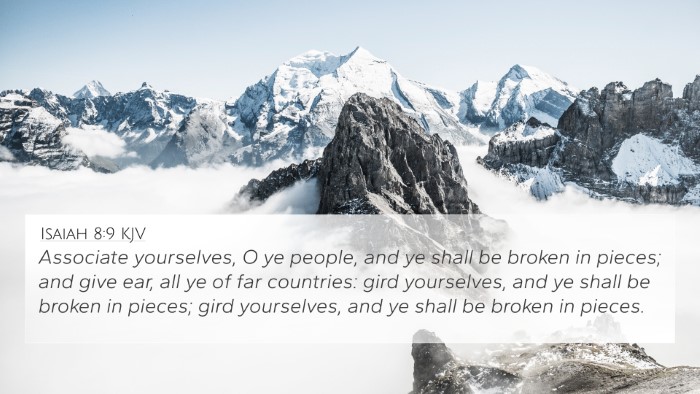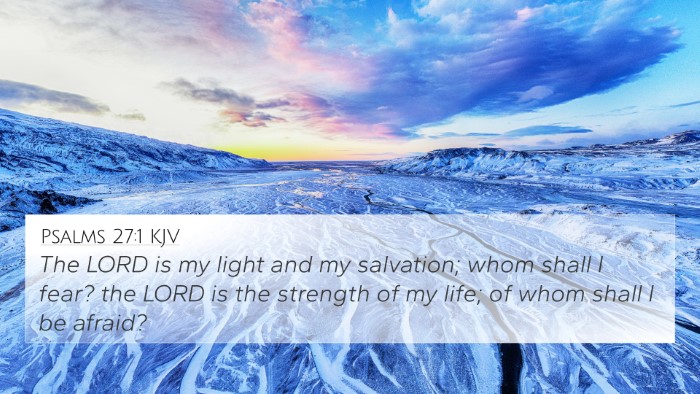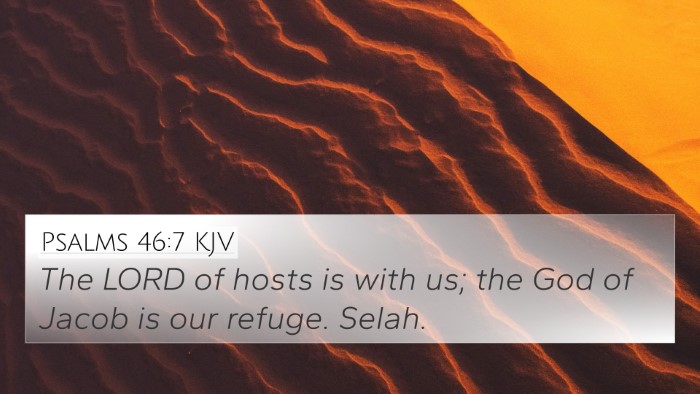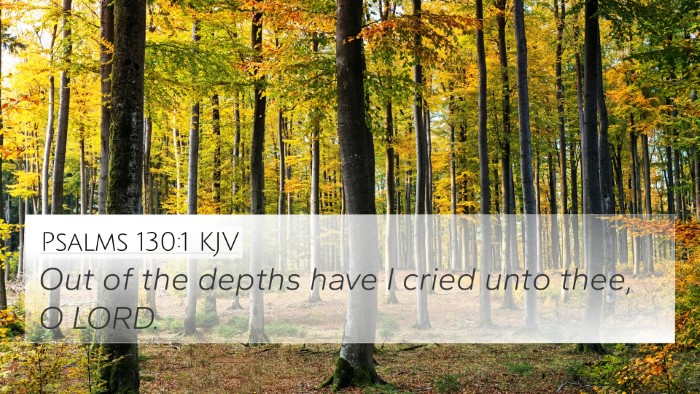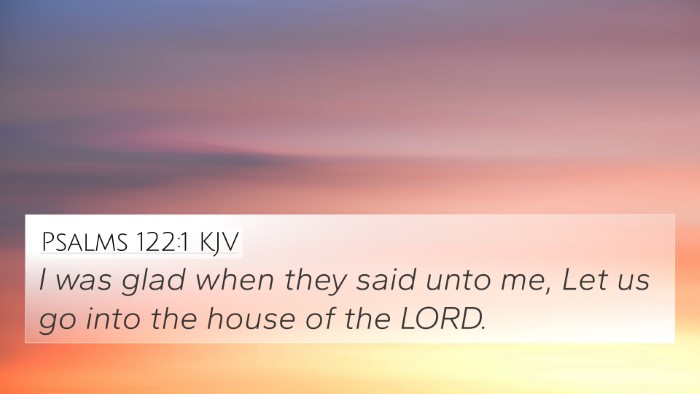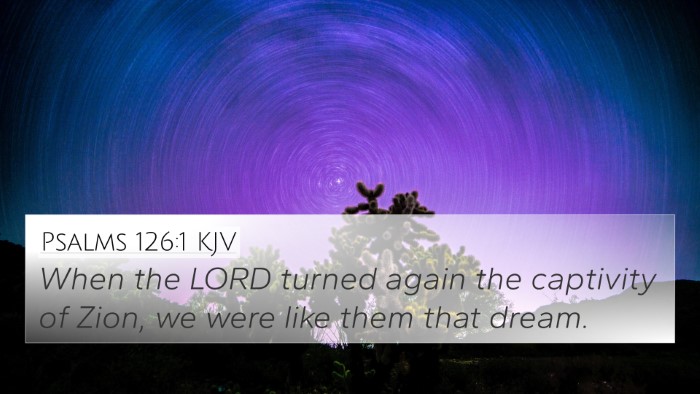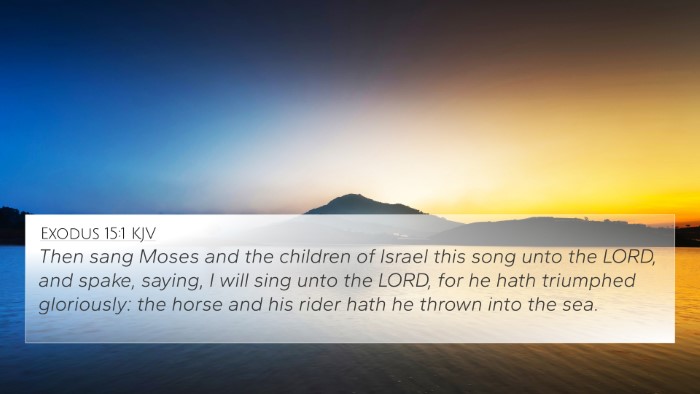Psalms 124:1 - Understanding the Verses
Psalms 124:1 reads:
"If it had not been the Lord who was on our side, let Israel now say." (ESV)
Summary and Interpretation
This verse serves as an introduction to the entire Psalm, which reflects on God's enduring protection over Israel. The statement emphasizes the importance of divine support in times of trouble.
Insights from Public Domain Commentaries
The combined insights from Matthew Henry, Albert Barnes, and Adam Clarke provide a multi-faceted interpretation of Psalms 124:1:
- Matthew Henry: He notes that this Psalm is a song of gratitude and acknowledgment of God’s intervention in the lives of His people. Henry suggests that the phrase indicates a reflective pause where the faithful recognize their vulnerability without God’s aid.
- Albert Barnes: Barnes highlights the corporate aspect of the statement, inviting all of Israel to affirm their reliance on God. He stresses the significance of communal acknowledgment of God’s sovereignty, suggesting that unity in faith strengthens the believer's resolve.
- Adam Clarke: Clarke perceives this verse as a call to remember the past deliverances provided by God. He elaborates that the phrase "on our side" symbolizes not only divine presence but also protection, suggesting that God's presence is crucial for survival against adversities.
Thematic Exploration
Several key themes arise from Psalms 124:1:
- Divine Protection: The verse emphasizes that human strength is insufficient without God's help.
- Community Affirmation: Reflecting on God’s aid is presented as a collective experience, signifying the strength of community in giving thanks to God.
- Recognition of Vulnerability: The verse invites reflection on human frailty and the necessity of divine support in perilous times.
Bible Cross References
Understanding Psalms 124:1 is enriched through its connections to other Scriptures. Below are some relevant cross-references:
- Psalm 46:1 - "God is our refuge and strength, a very present help in trouble."
- Psalm 121:1-2 - "I lift up my eyes to the hills. From where does my help come? My help comes from the Lord, who made heaven and earth."
- Proverbs 18:10 - "The name of the Lord is a strong tower; the righteous man runs into it and is safe."
- Isaiah 41:10 - "Fear not, for I am with you; be not dismayed, for I am your God; I will strengthen you, I will help you."
- Hebrews 13:5 - "For he has said, 'I will never leave you nor forsake you.'"
- 2 Corinthians 1:10 - "He delivered us from such a deadly peril, and he will deliver us. On him we have set our hope that he will deliver us again."
- Romans 8:31 - "What then shall we say to these things? If God is for us, who can be against us?"
Applying the Insights
The reflections offered in Psalms 124:1 can be applied to modern faith practices:
- Encourage communal worship where believers share testimonies of God's provision.
- Promote awareness of personal vulnerabilities and reliance on God through prayer and scripture study.
- Utilize Biblical cross-references in sermon preparation or personal study to deepen understanding of God's character and promises.
Cross-Referencing and Biblical Studies
Thematic connections between biblical texts reinforce the lessons of Psalms 124:1. Tools for Bible cross-referencing, such as concordances and reference guides, enhance study and understanding, revealing how verses interlock to build a complete biblical narrative.
Cross-Referencing Techniques
For those looking to study the Bible deeper, consider the following methods:
- Using a Bible Concordance: This tool helps locate verses related to specific themes or words, enhancing the study of connections.
- Bible Cross-Reference Guide: Utilizing guides can assist in tracing similar themes across different books of the Bible.
- Systematic Cross-Referencing: Establish a system wherein you link verses as you study one passage, creating a network of related scripture.
- Bible Chain References: This method allows you to follow a sequence of verses related to a specific topic or teaching.
Final Reflection
Psalms 124:1 serves as a powerful reminder of the essential nature of God's presence in our lives. Through collective acknowledgment and reflection on divine protection, believers can build their faith and encourage one another during trials.









